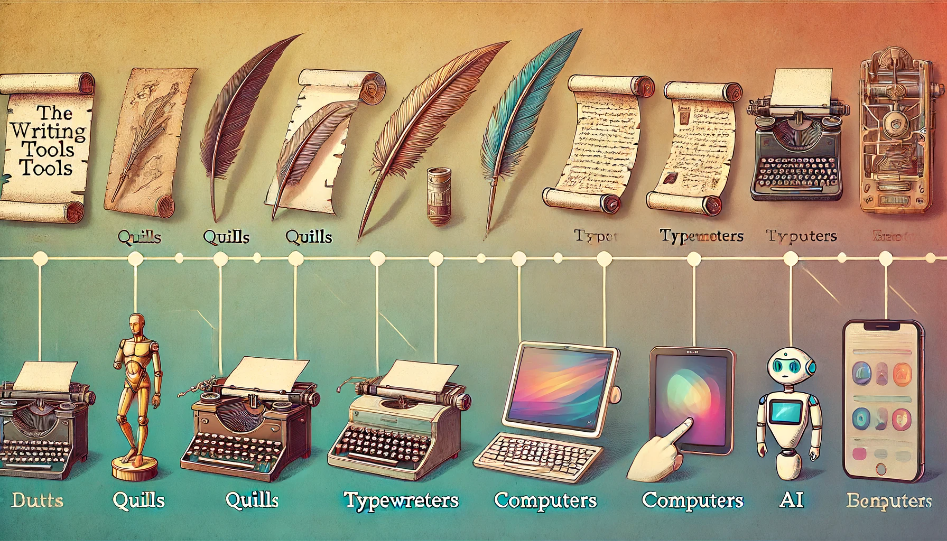The Evolution of Writing Tools: From Quills to AI

Introduction
The art of writing has always been intertwined with the tools used to create it. From the earliest cave paintings to the modern digital age, the evolution of writing tools has significantly influenced how stories are told and shared. This article delves into the fascinating journey of writing instruments, exploring their impact on literature and the creative process.
The Dawn of Writing: Quills and Parchments
In ancient times, writing was a laborious task. Scribes used reed pens and clay tablets to record important events and stories. As civilizations advanced, the quill pen became the primary tool for writers. Made from bird feathers, quills were dipped in ink and used to write on parchment or vellum. This period saw the creation of many historical documents and literary masterpieces.
The Printing Revolution: From Manuscripts to Mass Production
The invention of the printing press by Johannes Gutenberg in the 15th century marked a significant turning point in the history of writing. This revolutionary device allowed for the mass production of books, making literature more accessible to the general public. The printing press democratized knowledge and paved the way for the Renaissance and the Enlightenment.
The Typewriter Era: Mechanizing the Writing Process
The late 19th and early 20th centuries witnessed the rise of the typewriter, a mechanical marvel that transformed the writing process. Typewriters offered a faster and more efficient way to produce written content, and they became indispensable tools for journalists, authors, and office workers. This era saw the birth of many literary classics and the professionalization of writing.
The Digital Age: Computers and Word Processors
The advent of computers and word processors in the late 20th century revolutionized writing once again. These digital tools offered unparalleled convenience, allowing writers to edit, format, and store their work with ease. The internet further expanded the reach of writers, enabling them to share their creations with a global audience instantly.
The Rise of AI: Intelligent Writing Assistants
In recent years, artificial intelligence has made significant strides in the realm of writing. AI-powered writing assistants, like Grammarly and ChatGPT, have become valuable tools for writers. These intelligent systems can generate content, provide grammar and style suggestions, and even help with brainstorming ideas. AI is transforming the writing landscape, making it easier for authors to produce high-quality content.
Impact on the Creative Process
Each advancement in writing tools has had a profound impact on the creative process. Quills and parchments required meticulous effort, fostering a deep appreciation for the written word. The printing press democratized literature, making it accessible to a broader audience. Typewriters introduced efficiency, enabling writers to focus more on content creation than on the mechanics of writing. Computers and word processors brought unprecedented convenience, allowing for seamless editing and collaboration. Finally, AI is enhancing creativity by providing writers with new ways to generate and refine ideas.
The Future of Writing Tools
As technology continues to evolve, so too will the tools used by writers. Future advancements may include even more sophisticated AI writing assistants, virtual reality environments for immersive storytelling, and brain-computer interfaces that translate thoughts directly into text. These innovations will undoubtedly shape the future of literature and expand the boundaries of human creativity.
Conclusion
The evolution of writing tools is a testament to humanity's enduring love for storytelling. From quills to AI, each innovation has brought new possibilities and challenges to the world of writing. As we look to the future, it is exciting to imagine how emerging technologies will continue to transform the way we create and share stories. Whether you're a seasoned author or an aspiring writer, embracing these tools can help you unlock new levels of creativity and reach a wider audience.



